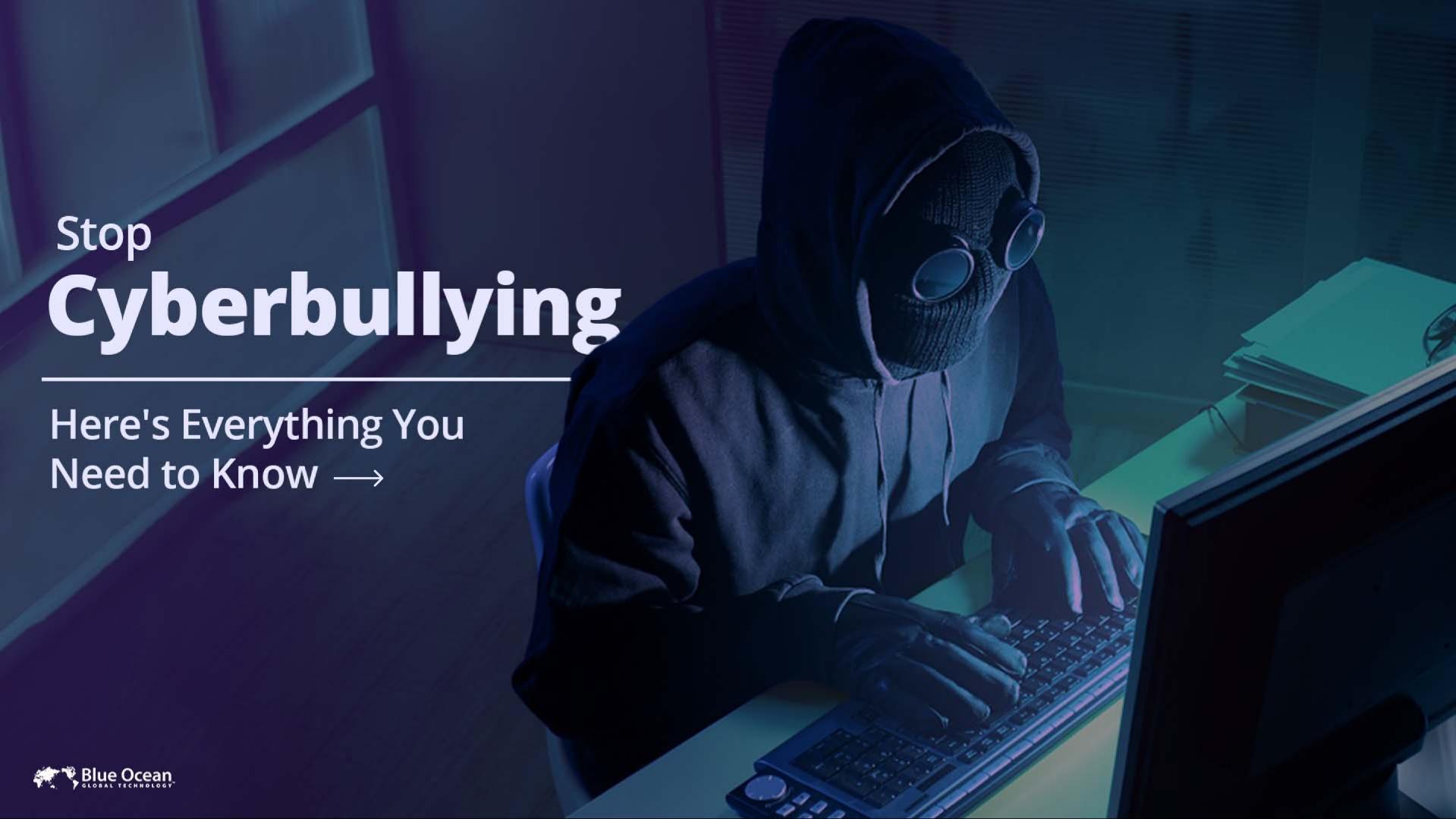Cyberbullying may be a relatively new phenomenon, but the increase in social media sites and the ever-growing use of digital devices provide a ripe environment for the proliferation of bullying tactics. Unfortunately, it is something we must learn to live with and defend ourselves from.
According to the global anti-bullying campaign by DoSomething.org, about 37% of young people between the ages of 12 and 17 have been bullied online, and 30% have experienced it more than once. And worryingly, young people who experience cyberbullying are at a greater risk for both self-harm and suicidal behavior.
What is Cyberbullying?
According to the UN children’s agency UNICEF, cyberbullying is simply bullying with the use of digital technologies. It can take place on social media, messaging platforms, gaming platforms, and mobile phones. It is often repeated behavior aimed at scaring, angering, or shaming the victims.
Another definition put forward by the cyberbullying researcher PK Smith suggests cyberbullying is an “aggressive, intentional act carried out by a group or individual, using electronic forms of contact, repeatedly and over time against a victim who cannot easily defend himself or herself.”

Image Credits: Blue Ocean Global Technology
Cyberbullying may include posting embarrassing photos of someone on social media, sending hurtful or threatening messages, posing as someone and sending cruel messages to others, or exposing one’s personal information—anything that shames, embarrasses, threatens, or otherwise upsets the victim.
There are some key differences between face-to-face bullying and cyberbullying. On the negative side, cyberbullies can hide behind an anonymous identity, potentially reducing the consequences of their behavior. The bullying is also visible to more people and can impact the public reputation of the victim. Conversely, cyberbullying leaves a digital footprint, content that can be used as proof of bullying, possibly to help report and/or end the abuse.
What Are the Effects of Cyberbullying?
Unlike face-to-face bullying which tends to be localized, cyberbullying is often visible to the public and can happen at any time, in any place. Victims can be in their homes and still be bullied by someone online—there is no escape. This can have a detrimental impact, especially on those of a vulnerable age, in terms of kids’ social and cognitive development.
Mentally, victims may question their worth or become angry; emotionally, they may develop feelings of shame or lethargy; and physically, they may experience symptoms caused by stress, such as stomach problems and even a tendency to self-harm.
According to StopBullying, the effects of cyberbullying can also impact both the victim and the perpetrator later in life. Any content created or shared online by an individual forms part of their online public reputation, which may be accessible to schools, employers, colleges, clubs, and others who may be researching an individual now or in the future.
We Value Reputation,
Let’s Rebuild Yours.
A Positive Reputation is Priceless. Value and Protect It.
How Can We Spot and Stop Cyberbullying?
Understanding how young people are cyberbullied is important so that the behavior can be easily recognized and preventive measures can be taken to stop cyberbullying. Some examples of cyberbullying tactics include:
- Sharing a photo of somebody nude or in a compromising position. This can expose the victim to public ridicule, embarrassment, and shame.
- One person is singled out by a group and subjected to consistent harassment—possibly false accusations or lies. This constant barrage of abuse via social media and direct messaging can be all-consuming and relentless, gradually wearing down victims until they break, either mentally or physically.
- Victims are tormented due to prejudice on the part of the perpetrator, whether it is based on race, gender, sexual preference, background, or economic means.
- Perpetrators may adopt a fake identity to coerce victims into sharing personal information or to shield their true identity, to avoid the consequences of online bullying. Similar to someone engaging in road rage, the perpetrator feels secure behind a screen and freer to bully without being discovered or punished.
- Persuading victims to do something they don’t want to or something that will make them look foolish. Cyberbullying tactics can include perpetrators putting pressure on victims to harm themselves, make a fool of themselves, or, in extreme cases, take their own lives.
- Exposure of victims’ personal details to invite further harassment or even a threat to their safety. Also known as doxing, this occurs when a perpetrator posts personal details such as a home address, email, and social media links online, inviting others to target the individual with abuse.

Image Credits: Pexels
Why Do Cyberbullies Bully?
Nowadays, young people are prone to become addicted to social media, and this can increase their propensity to commit cyberbullying or fall victim to it. According to a study by University of Georgia researcher Amanda Giordano and others, those who spend more time online, have elevated social media addiction scores, and identify as male are more likely to commit acts of cyberbullying.
“Social media addiction is when people crave it when they’re not on it, and continue their social media use despite negative consequences,” said Giordano, principal investigator of the study and associate professor at UGA. “Some negative consequences could be they’re tired during the day because they’re scrolling all night long, they’re having conflicts with their parents, they’re getting poor grades in school or they’re engaging in actions online that they later regret, but they continue to use social media.”
Social networking sites are designed to give people a dopamine hit, Giordano added, and some people compulsively look for that hit. “It’s feeding into that addictive behavior, and they may be using cyberbullying as a way to get likes, shares, comments, and retweets,” she said. “That’s the common thread you see in behavioral addictions—people start relying on a rewarding behavior as a way to make them feel better when they’re experiencing negative emotions.”
Other reasons people might cyberbully others: to get revenge for hurtful acts (intentional or otherwise) victims have committed, to gain popularity, to distract themselves from other issues in their lives such as problems at home, or simply to try to get enjoyment in cruelty. Traditionally, bullies tended to be physically bigger and stronger, or simply older, but the digital world presents the opportunity to people who don’t have those characteristics.

Image Credits: Pexels
What Are the Steps We Can Take to Prevent Cyberbullying?
Cyberbullying, despite the public nature of social media, can still go undetected by people around the victim, so it’s important to be aware of friends’ and loved ones’ mental, emotional, and physical states. Watch to see if you notice any signs of change. Because of the shaming and embarrassing effects of cyberbullying, victims may be reluctant to tell anyone it’s happening.
The good news is, once others who can help and support the victim become aware of the abuse, steps can be taken to stop it and punish the perpetrator(s). But it will take all of us to become vigilant and remain so about the existence of cyberbullying because, unfortunately, it isn’t showing signs of going away.
In order to stop cyberbullying, it’s essential to determine the uniqueness of each case. If you or someone you know is experiencing cyberbullying, you can seek help from a number of organizations, including Blue Ocean Global Technology, that can provide support in resolving your case and restoring your online reputation.
Are You or Someone Close to You a Victim to Cyber Crime?
You Don’t Have to Face It alone.We Are Here to Support You.
Contact Us Today.














Comments are closed.